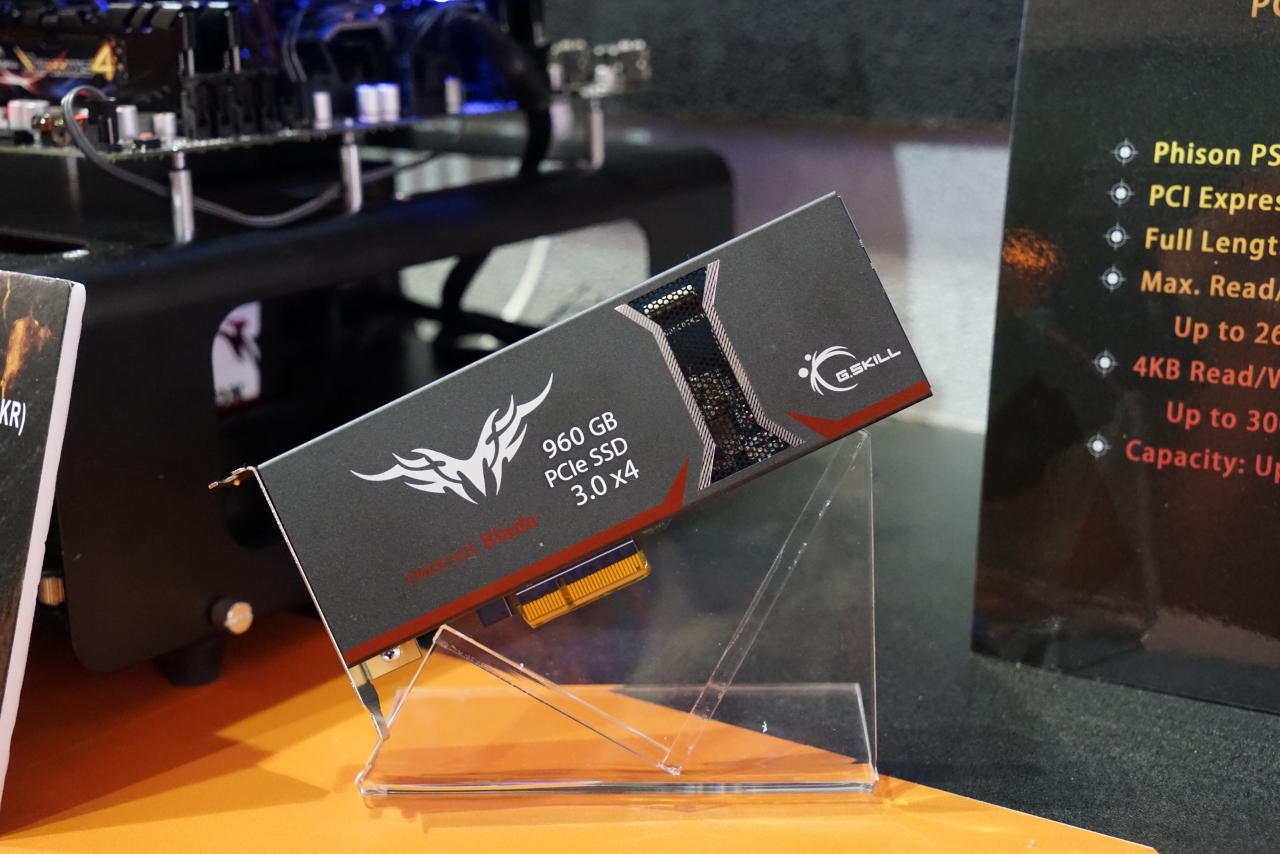G.Skill Reveals Phoenix Blade X: More Performance With Less Power
G.Skill's original Phoenix Blade SSD stole the show at Computex 2014 and went on to become one of the best workstation class storage products in late 2014. The original drive used four SandForce SF2000 series controllers bonded together with a CoreRise RAID controller transferring data to the host via PCIe 2.0 x8.
Although the Phoenix Blade outperformed the OCZ RevoDrive 350 -- at the time the workstation class market leader -- in many tests, new NVMe-based products like the Intel SSD 750 and Samsung SM951-NVMe have taken the spotlight. Both products manage to deliver higher random performance at low queue depths and do not suffer from performance roll-off with incompressible data. To combat the upcoming NVMe protocol explosion, G.Skill plans to release an updated Phoenix Blade product that brings an attractive package to a plain green PCB world.
G.Skill claims the updated Phoenix Blade X will deliver up to 2,600 MB/s sequential read and up to 1,400 MB/s sequential write speeds. The random read performance is said to surpass 300,000 IOPS with random write performance coming in at 200,000 IOPS. The numbers are nearly identical to the PS5007-E7 we spent time with earlier in the week.
The underlying architecture is from Phison, an 8-channel version of the PS5007-E7 NVMe controller that can scale to 2 TB of capacity. G.Skill displayed a 1024 GB model (960 GB after overprovisioning). Unlike Phison, G.Skill didn't provide booth visitors a chance to test drive the Phoenix Blade X. Given the complexity of NVMe, we can understand why the drive wasn't forced to perform for international media under show conditions this early in development.
With a single controller instead of a RAID controller paired with four flash controllers, the second iteration of Phoenix Blade should reduce power consumption significantly. This will also lower case and room temperatures. Lower temperatures reduce fan rotation speed and thus lower any acoustic annoyances that A/V production studios find distracting.
Among the large number of companies showing the Phison PS5007-E7 NVMe controller, G.Skill takes top honors for the physical appearance of the product. We worry the extra and unnecessary cover will drive costs up on this product if released in the channel. We wouldn't mind paying a little more for the high quality cover in systems built for both form and function. G.Skill has a long history of shipping SSDs at competitive prices but in years past the time-to-market followed competing products with nearly identical features. With hardware design and firmware provided by Phison, the Phoenix Blade X has a chance to enter the market much sooner than the previous model's four month ramp-up time. We're excited to see this product enter production and hope the product manager is able to deliver workstation class performance at a competitive price point to G.Skill's targeted audience.
Get Tom's Hardware's best news and in-depth reviews, straight to your inbox.

Chris Ramseyer was a senior contributing editor for Tom's Hardware. He tested and reviewed consumer storage.
